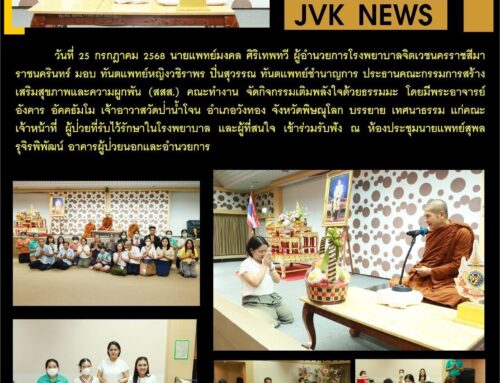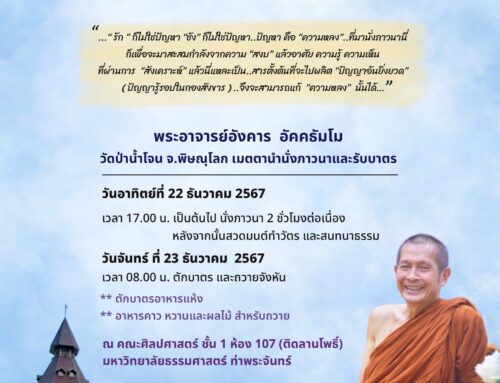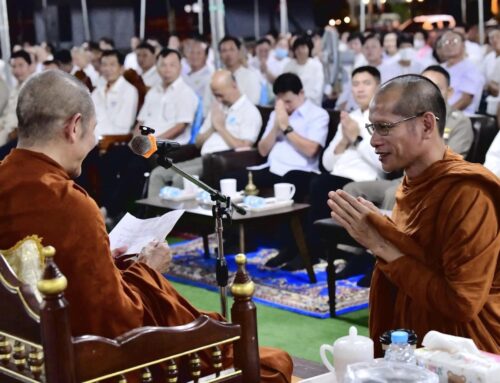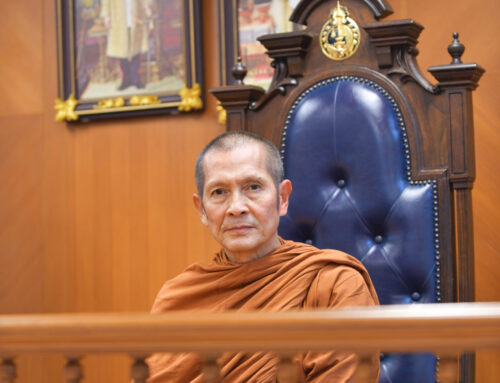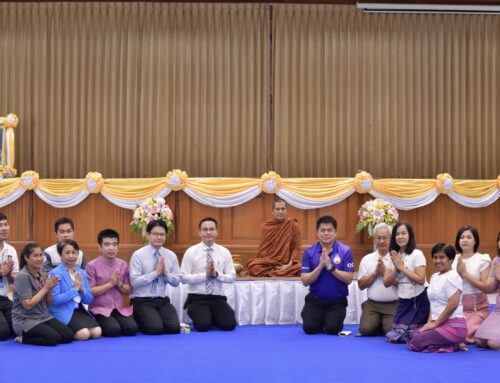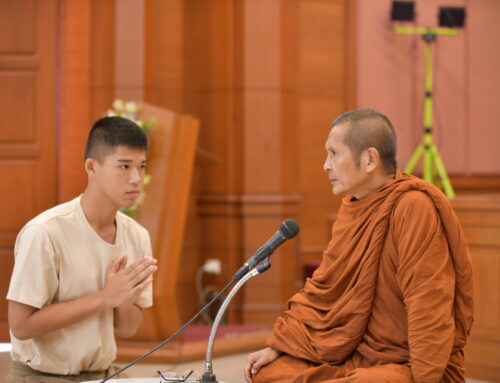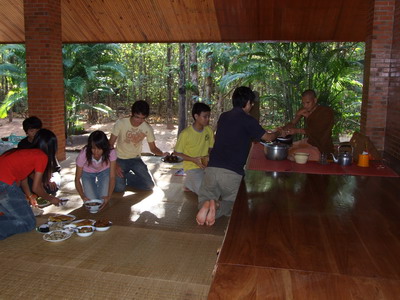
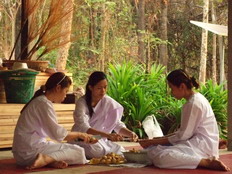
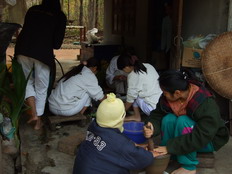
“..เคยเห็นหลายคน หลายรูป แล้วก็หลายครั้งนะ ไอ้ที่บอกว่าชอบปฏิบัติธรรมแถมยังมาคุยเป็นคุ้งเป็นแควว่าได้เรียนรู้มาหลายสำนักโดยเฉพาะกับ ครูบาอาจารย์ที่โด่งดังมีชื่อเสียงกันทั้งนั้น เรื่องที่ได้ไปศึกษา กราบไหว้ ไปทำบุญกับพ่อแม่ครูบาอาจารย์นั้นเราก็ขออนุโมทนาบุญด้วย ไม่อิจฉาแล้วก็ไม่ตื่นเต้นหรอก แต่ที่น่าเสียดายเป็นอย่างยิ่งก็คือ แม้แต่การกราบการไหว้ก็ยังไม่เป็นเลยนี่สิ ยังไม่ต้องพูดถึงการที่จะไปทำกิจกรรมทำข้อวัตรกับหมู่คณะหรอก ความจริงการที่ได้มีโอกาสไปศึกษากับครูบาอาจารย์นั้น มันน่าจะได้ประโยชน์กับตัวเองมากกว่านี้ ถ้ารู้จักตัวเอง แต่เพราะมันไม่เคยหันมาดูตัวเอง มันก็เลยไม่เห็นตัวเอง จึงไม่รู้จักตัวเอง สถานที่นี้ที่เราอยู่เราเน้นมากเป็นอันดับหนึ่งก็คือเรื่องของตัวเองนี่แหล่ะเป็นสำคัญ หากว่าจะมีใครมาพักปฏิบัติธรรม ไม่ว่าพระว่าโยม ไม่ว่าคุณจะเป็นใคร การมาปฏิบัติธรรมในทัศนะของเราก็คือ การมาเรียนรู้เรื่องของตัวเอง มาแสวงหาความพอดีให้กับตัวของเราเองนั่นแหล่ะ โดยเราจะต้องรู้จักกับกาลเทศะ รู้จักความอ่อนน้อมถ่อมตนมีสัมมาคารวะ รู้จักการเอื้อเฟื้อเกื้อกูลกัน รู้จักเอาใจเขามาใส่ใจเรา รู้จักเคารพสิทธิของคนอื่น รู้จักให้เกียรติซึ่งกันและกัน รู้จักเคารพขนบธรรมเนียมจารีตประเพณีของแต่ละท้องถิ่นแต่ละสังคม และรู้จักการให้อภัยซึ่งกันและกัน หากคุณพยายาม “ทำ” ให้ได้ตามที่คุณ “รู้จัก”ให้พอดีกับเพศภาวะ สถานะของตัวเอง … คุณก็จะ “รู้จัก” กับคำว่า “จริยธรรม”…เพียงเท่านี้คุณจะไปอยู่ในที่ไหน ๆ ก็ไม่ทำให้สถานที่นั้นๆให้ได้รับความเดือดร้อนเพราะคุณ… ทำให้ได้จนเป็นนิสัย…ทั้งโลกนี้แลโลกหน้า คุณก็ไม่ลำบากแล้ว มีความสุขอยู่ตามอัตภาพแล้ว เป็นผู้มีความเป็นปกติแล้ว … เป็นผู้มีความเย็นแล้ว… นั่นล่ะ … “ศีล” … เป็นผู้มีความพอดีแล้ว นั่นล่ะ… “ธรรม”…. “ศีลธรรม”น่ะ เข้าใจมั้ยล่ะ…ศีลธรรม…“ผู้มีจริยธรรม” ก็คือ “ผู้ที่มีศีลมีธรรม” นั่นแหละ… เอาล่ะ เอวัง…”
แสดงธรรมที่วัดป่าน้ำโจน 13 ก.พ. 2550
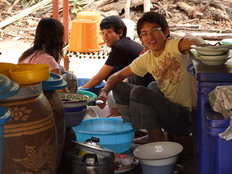
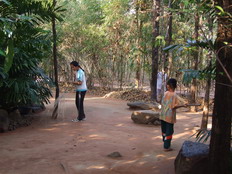
The Dhamma of Living together
“….. I have seen and talked to a number of people both monks and householders, who told me that they lked to practise meditation and have done so with a number of some famous meditator monks. But as I observe, it is pity that their making the five point prostration may be said not to be correct according to the Buddhist principles, not to mention the activities with other Buddhist members. In fact, those who have claimed like that should gain more profits for themselves than they had if they know themselves. But it may be because they do not look at themselves they do not see and know themselves. Here in this place, what we have always emphasised is ‘ your own self ’. Those who come and practise Dhamma in this place, whether they are monks and householders, are to study and know themselves first. Practising Dhamma in our opinion is to study and know one’s ‘ self ’. They should know their adequacy or sufficiency. They should know ‘ place and time ’. They should know submissiveness and reverence. They should know help and favour. They should know to place others in their own heart. They should know to respect other’s right. They should know to honour each other. They should know customs and tradition of the locals and society. They should know to forgive each other. If you try to ‘ do ’ as you ‘know’ according to your condition and status, you will know the term ‘Cariyadhamma’ or ‘Buddhist conduct’. With only this practice in your mind, you can go anywhere. No one and place are troubled by you. If you practice them in your own daily life, it can be called sila or morality. That is, you have adequacy which includes Dhamma. Those who always follow the Buddhist conduct are those who have morality and Dhamma. That’s all…..”
Wat Pah Nam Jone
February 13, 2007
Translated by
Suwat Charoensuk

